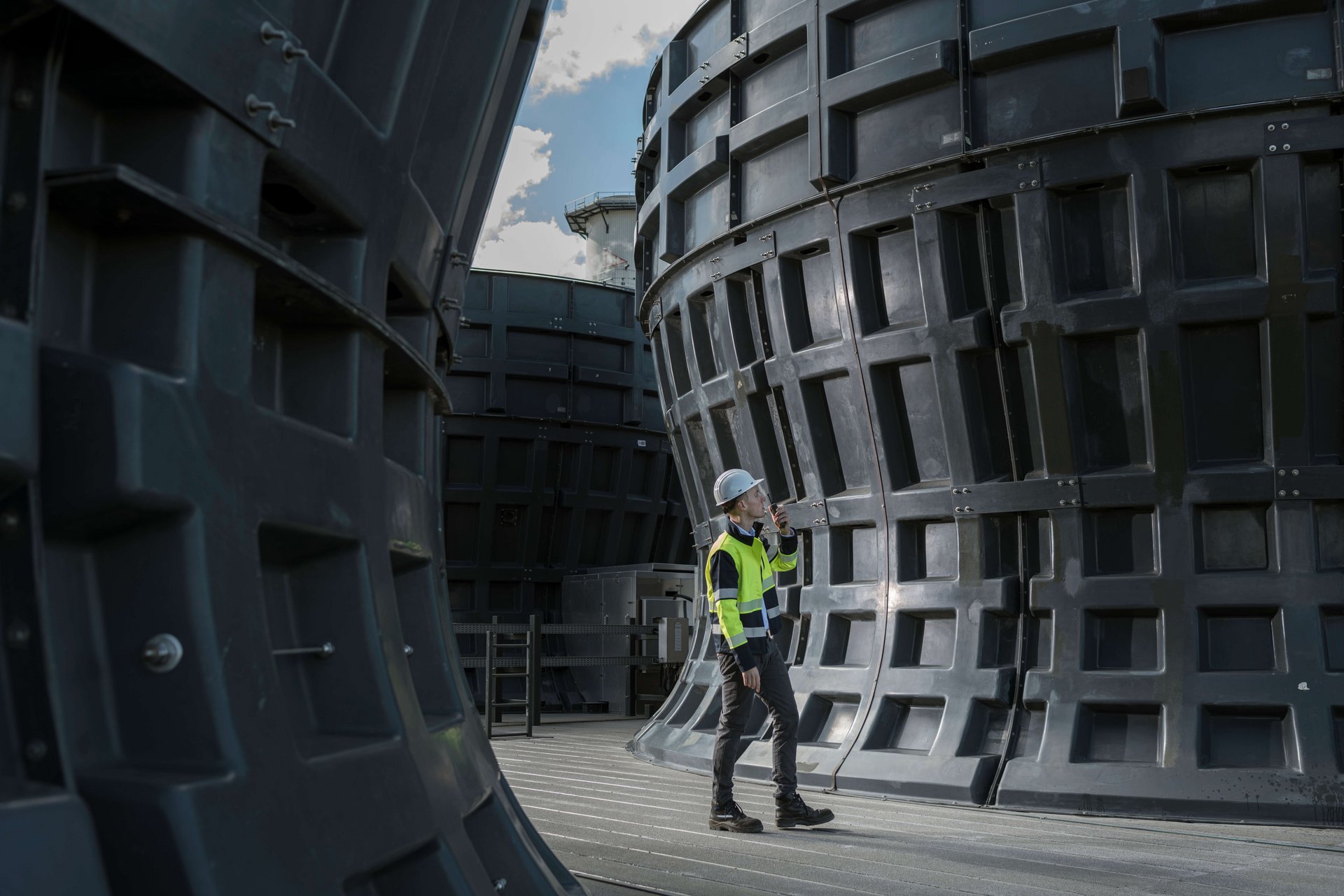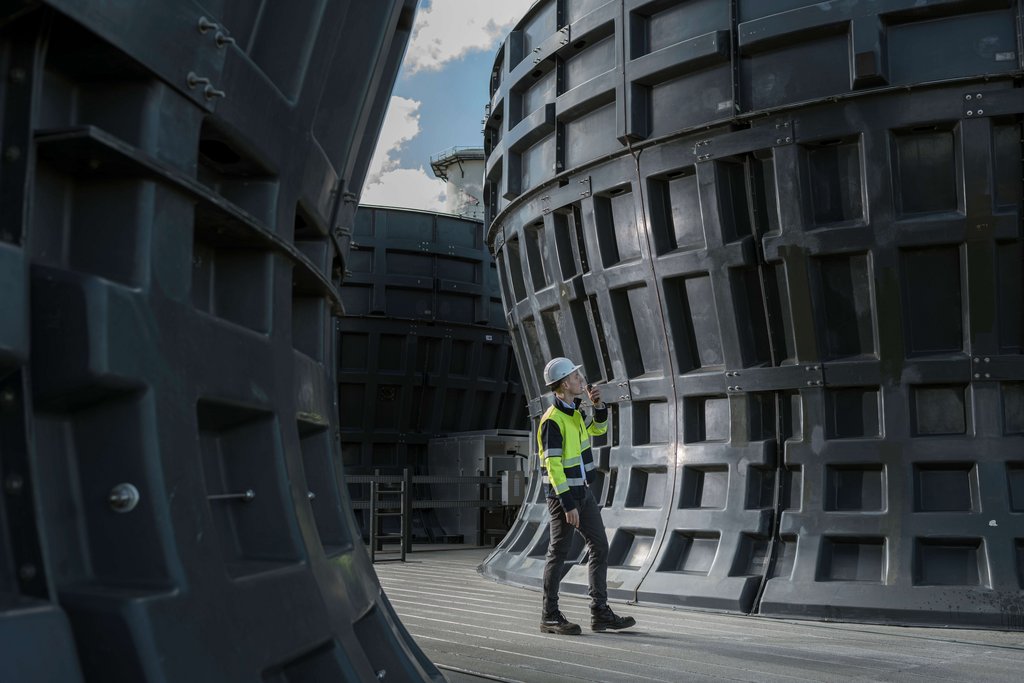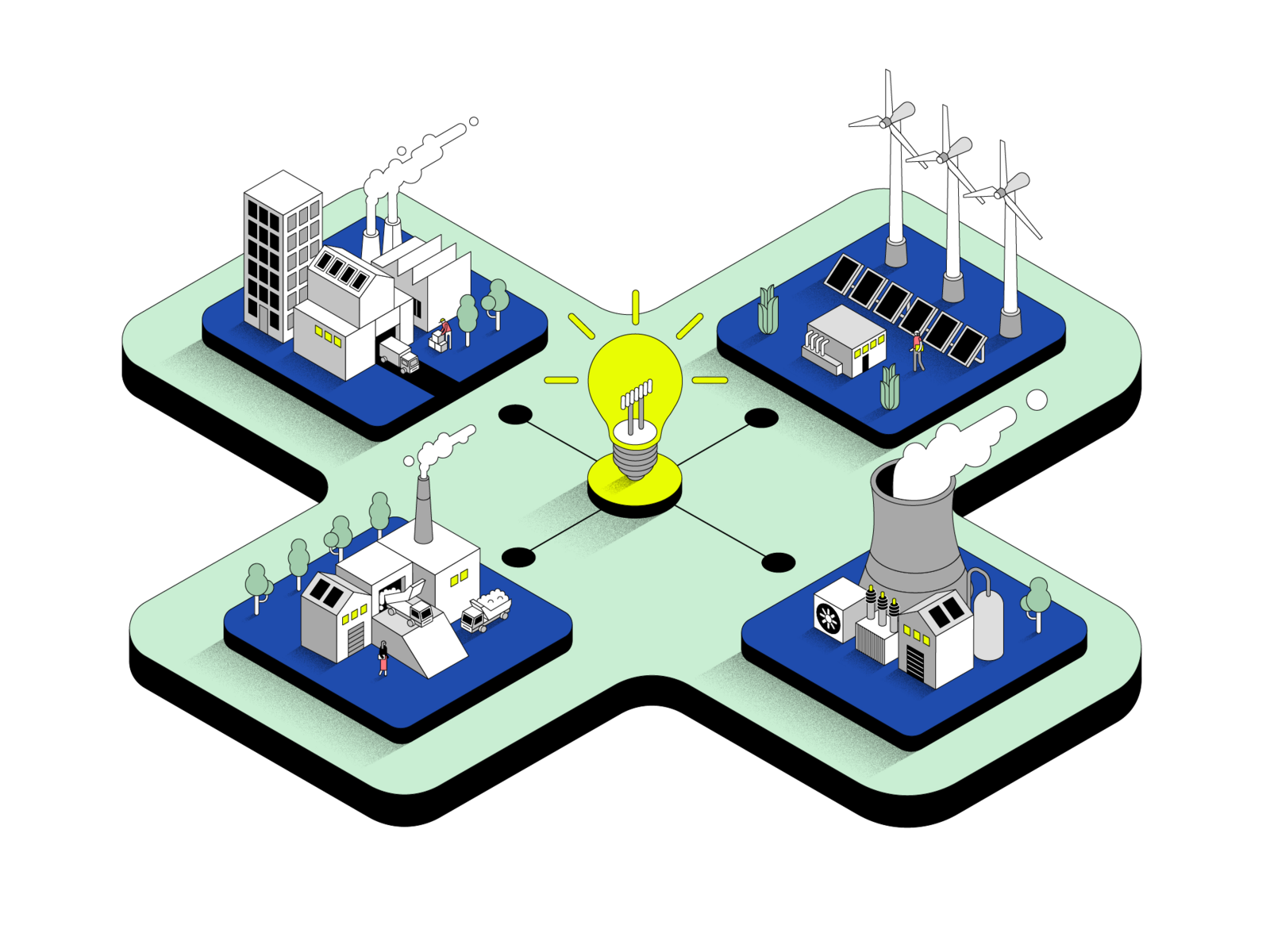

Conversion of boiler systems for sustainable electricity and heat generation
In view of the decarbonization of the energy industry and the need for a sustainable energy supply, we support you in switching from coal and oil firing to more environmentally friendly alternatives such as natural gas and biomass.
In the context of the energy transition, natural gas plays an important role as a transitional technology on the way to the future use of hydrogen. Natural gas is considered a climate-friendly fuel due to its high energy density and efficiency. It enables a significant reduction in CO2 emissions compared with coal and oil. In particular, owners and operators of heating plants, power plants and combined heat and power plants are aiming to switch to natural gas in order to ensure H2 readiness.
Our experts support you in analyzing and planning a fuel switch. We take account of various technical factors such as the fuel supply, the effects on the plant process and the conversion work required. A detailed site-specific analysis is the key to determining the feasibility of a fuel switch.
Access to the natural gas supply plays a decisive role in the conversion. If your boiler systems do not yet have a direct natural gas connection, we examine the options for connecting to the gas network. We determine the optimum connection point and take into account cost factors such as the laying of natural gas pipes and the approval procedures. We also help you install a gas pressure reducing and metering station and the connecting lines to the burners in the boiler system to be converted.
Our aim is to maintain the achievable system output and simultaneously reduce CO2 emissions.
Combustion of natural gas has different characteristics from combustion of solid or liquid fuels. We therefore analyze the effects on system performance and ensure that the approved thermal capacity is not exceeded.
In addition to natural gas, we also look at other alternative fuels such as biomass. We examine the opportunities for using wood chips or wood pellets and consider both their carbon footprint and the engineering work required for conversion.
Our experienced team will support you through every step of the fuel switch, from planning to implementation. We attach great importance to a sustainable and reliable energy supply and help you to achieve the goals of the energy transition.
The Iqony decarbonization study is the perfect start to a successful fuel switch!
By having our experts look at all the relevant levers, an energy study will give you a sound understanding of the challenges and impacts that need to be considered when switching to more sustainable fuels. Our action plan is based on an analysis of your on-site plant conditions and is tailored specifically to suit the individual requirements and goals of your company. We develop solutions for you that include the integration of renewable energies, the optimization of energy efficiency, the implementation of new technologies and the redesign of your production processes.
The development of customized options is especially important to us. We present you with various approaches to develop a customized strategy that meets your specific needs and goals. The results of our decarbonization study serve as a clear roadmap for implementing the fuel switch. We provide you with clear guidelines and recommendations for action, and work with you to find the optimal combination of measures for your successful transition to greener fuels.
Increasing system efficiency by using modern technologies and digital solutions
Are you currently considering specific measures to increase the efficiency of your plant? The deployment of digital tools or the use of modern technologies can help in that context.
When switching to cleaner and more sustainable fuels, increasing efficiency by using digital solutions plays a crucial role. Digital systems enable you to improve the performance of your plant and optimize energy consumption. Digital solutions enable precise monitoring and control of your plant in real time. By implementing analysis tools, you can precisely record and analyze the operating status of your system. This gives you valuable insights and allows you to develop targeted measures to increase efficiency.
By using innovative system technologies, you can reduce energy consumption and maximize output at the same time. This can be achieved, for example, by installing energy-efficient components or using heat recovery systems. More efficient systems have several advantages. They not only reduce fuel consumption, but also help to lower operating costs. Our experienced team will analyze your plant systems and work with you to find ways to increase efficiency.


